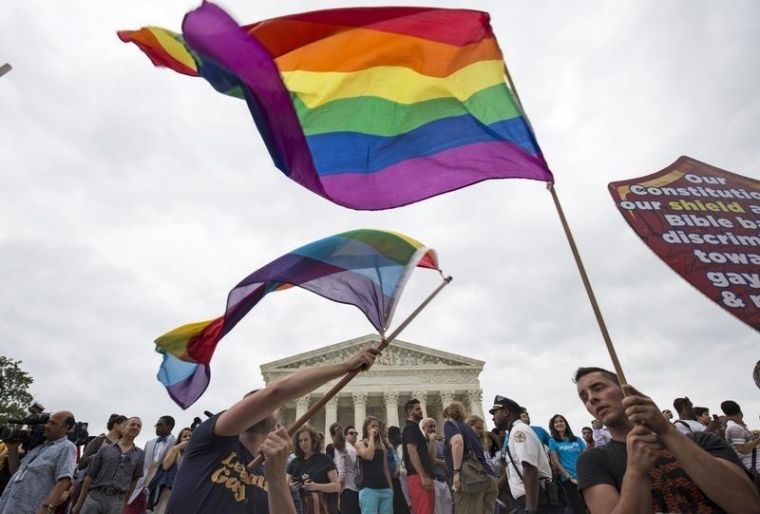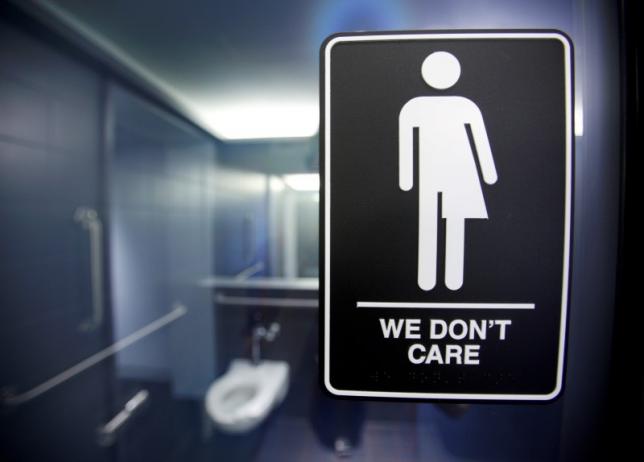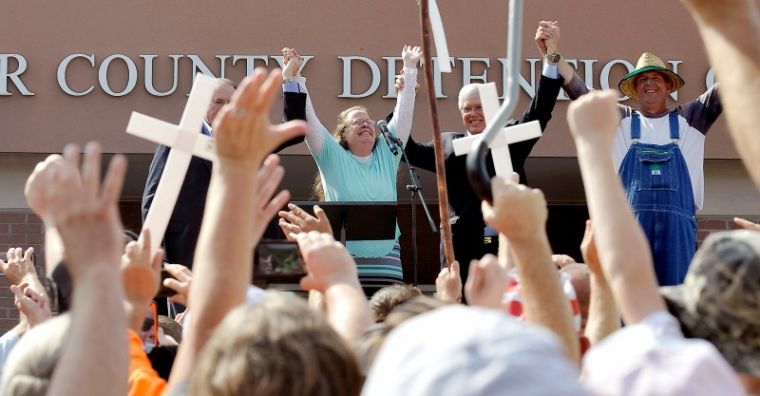The damaging myth of religious persecution in America
American Christians are not suffering right now, but if you read some of the headlines lately, you'd think our churches are in danger of being shuttered. A recent editorial in Christianity Today presents a particularly damaging perspective on the American Church because it redirects our attention from the believers suffering persecution around the world to the cultural shifts in America.

Before addressing the unfortunate piece in Christianity Today, let's examine what Christians around the world face compared to the American church:
A snapshot of global persecution
Besides the highly publicized torture, rape, and killing of Christians in Iraq and Syria and the imprisoning of Christians in Iran, or the current crackdown on Christians in China, there are equally serious attacks that Christians face in Pakistan where they are frequently marginalized, turned into indentured servants, and targeted in terror attacks. As Hindu nationalists take power in India, missionaries have been intimidated by local officials, Christians and churches attacked, and pastors beaten and threatened with cans of gasoline and matches. These all fit the profile of the dictionary meaning of persecution where a group is exterminated, driven away, or subjugated because of their beliefs.

Christians throughout Nigeria face attacks by extremist groups who control portions of the northern part of the country, while both government officials and extremists throughout Egypt continue to limit church building progress, marginalize, and harass Christians.
From economic marginalization to attacks on buildings, to personal threats and harm, Christians around the world face extraordinary pressure, stress, anxiety, and obstacles. They need our attention, prayers, and support. However, on a secondary note, they can also teach us how to persevere in the midst of suffering and trials, patiently trusting God to deliver them instead of fighting on the public square for greater political power.
What passes as "persecution" in America?
The focus of perceived "persecution" in America has been around issues such as prayer in schools, the use of public buildings for church services, same sex marriage, and transgender bathroom laws. However, each of these situations take for granted the freedom of religion and rather aim to determine whether the rights of religious practice are infringing on those who do not practice a religion or do not share the same religious beliefs. We could say that "freedom of religion" issues in America often try (sometimes failing, sometimes not) to balance the rights of different groups rather than seeking to attack or marginalize Christians.

These are serious and important issues in their place, but they are apples and oranges compared to the attacks on Christians around the world and the ways that groups attempt to limit their rights or livelihood because they view the very existence of Christians as a threat.
The primary group who could be described as "persecuted" in American are those who attend black churches. The shooting in a Charleston, SC church by a white supremacist was racially motivated, but this type of threat is closer to the real persecution that Christians face around the world. While there surely are legal concerns and expenses involved in discussing what kind of bathroom churches offer transgender individuals, this discussion of extending rights to a particular group in light of religious freedom is hardly close to the marginalization and danger Christians face around the world.
Overall, America is shifting to include more religious minority groups and more people who self-identify as atheists or religiously unaffiliated. Our laws are also shifting to reflect this mindset. While more traditional or conservative Christian views no longer dominate American lawmaking to the same degree, that isn't the same thing as saying the American government, which is still primarily filled with Christians, has any designs to eliminate the freedom of religion guaranteed in the Bill of Rights.
Are American Christians Persecuted?
The mistaken editorial in Christianity Today suggests that American Christians should heed the analysis of persecuted Christians in the Middle East when it comes to the state of persecution in America. The article notes: "If our overseas brothers and sisters say we are, then we probably are."
First, there are many areas where we should defer to the wisdom of our Christian brothers and sisters overseas, especially those who are persecuted. We also owe a great debt of gratitude to those who venture overseas to support them, such as groups like the Preemptive Love Coalition that delivers food and supplies to refugees near the front lines of the conflict in Iraq.
Having said all of that, this article makes several key mistakes right off the bat. For starters, while persecuted Christians in the Middle East have much to teach us, they may not be experts in the state of the American Church or American politics. Would we expect persecuted Christians in Egypt to explain the state of the church in China? I would want to know what exactly these believers in the Middle East know of the American Church and, most importantly, which sources their information comes from.
However, even more baffling, this article in the top evangelical Christian magazine in America, includes some quotes that show the author has clearly made some mistakes in properly conceiving "persecution". Take the following quotes for instance from persecuted Christians in the Middle East:
"American persecution is like an advanced stage of cancer; it eats away at you, yet you cannot feel it. This is the worst kind of persecution."
"It wasn't only ISIS who laid waste to the Church; our cultural compromises with the government and our divisions against each other brewed for a long time. We are Damascus, the seat of Christianity; what happened to us can happen to you. Be careful."
The author follows these quotes with the following warning: "When persecuted Christian leaders overseas warn about how seriously US Christians are marginalized, it's time to listen."
From what I can tell, there must have been something lost in translation or some manner of confusion in these conversations. Neither of these quotes come even close to the perception of persecution in America.
For starters, there is more than enough noise in America about perceived "persecution". It's not a cancer that we haven't detected because 1) there is no actual persecution in America (unless you take hate crimes against black churches into account) and 2) there is plenty of noise about religious liberty fears. One could hardly visit a news website without an update regarding the religious liberty concerns over Kentucky clerk Kim Davis, who refused to hand out same sex marriage licenses.

The second quote from a Middle Eastern Christian mentions cultural compromises with the government and internal divisions, not an organized threat attempting to marginalize, kill, or drive away Christians due to their beliefs. I could not agree more with the statement itself. Christians in America have much to learn about cultural compromises, the cost of forging political agreements with divisive groups, and attacking each other. These are all legitimate threats to the Church, but none of them qualify as "persecution."
The real danger of an article like this is that it appears to call American Christians to greater awareness of the global Church, but it merely distorts what the global Church says and drives American Christians into a deeper obsession with perceived religious liberty threats that have not and most likely will not materialize. As we delve deeper into our fears of persecution over matters such as church bathroom usage, we will miss an opportunity to bless persecuted Christians with our prayers, support, and resources.
Missing our brothers' and sisters' great needs in the world is the true danger of claims that the American church is persecuted.
Ed Cyzewski (MDiv) is the author of Pray, Write, Grow: A Christian Survival Guide, and The Contemplative Writer. He writes at www.edcyzewski.com and is on Twitter as @edcyzewski.











